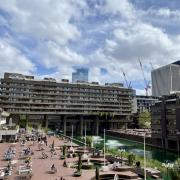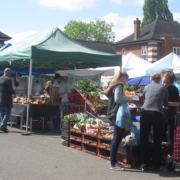
The Covid-19 Pandemic has had a substantial impact on London – what has been the biggest impact of the Pandemic on London and what has the Government done to minimise this?
It’s really difficult to narrow one thing down because clearly lives were lost and we’ve had to create the Nightingale Hospitals. The way we live our lives has changed and the Mayor, the Government, the London Boroughs and the voluntary sector have all pulled together to help support communities. But the long-lasting impact that we are still going through at the moment, with the return to the Local Tier structure, is the economy and the way we work, which will see permanent change. But at the moment, we’ve put in place the Job Retention Scheme, Loans and the Grants Support Scheme to wrap our arms around the economy - not just from our local high streets in London but also the Centre of London which is the generator of so much opportunity and investment in the country as a whole.
When life returns to normal how is the Government going to fire up London’s economy as a whole, but also in the Small Business sector?
It’s vitally important we get the whole of London’s economy up and running. The West End of London is 3% of the entire country’s economy right there, and that’s before you get to the Financial Sector in the City and Canary Wharf. We need to get people confident to travel around London and use public transport again. TFL have done amazing work already to make it safe and give you a warm welcome but we’ve got to show people that, not just tell them. Rapid testing and a vaccine will give people a sense of confidence to travel around London and return to the workplace. But I think people will come back more flexibly than they did before and that then means people will be able to start using pubs, restaurants, museums, theatres and all of the small businesses that service the headquarter office blocks around London – the sandwich shops, the coffee shops, the small accountants that work with these companies. That’s how we get London working again, including the Small Businesses as part of that ecosystem.
How do you feel Sadiq Khan’s handling of the pandemic has been?
In terms of working with London as a whole, he’s largely been absent. We needed a single, clear, coherent message from both the Government and the Mayor in order to give people confidence to go back to a relatively normal working life, and we haven’t really seen that. I hope for the sake of London, we can change that in the months to come. We’ve got Shaun Bailey (Conservative candidate for Mayor of London) who has been looking at real specifics like how we can repair TfL's finances, how can we get Hammersmith Bridge repaired to get people moving around West London, what can we do to get people housed? We need a Mayor that can deliver, not someone who only worries about their own political position; this should be about supporting Londoners and not someone’s career.
You recently said that, “We need to make the case for London” during a discussion about the levelling up of the country. How do you intend to make the case for London, and what do you see its economic future being with funding and investment directed away from the South East?
Levelling up and making the case for London is not mutually exclusive. Whilst the Government are lifting their heads up and looking away from London, because it is easy to be London-centric as a government sometimes, we need to continue to explain to colleagues in Government that first of all London itself needs levelling up. The fact is you can stand on the top floor of One Canada Square in Canary Wharf, one of the richest areas in London, and look down on parts of Whitechapel, which are amongst the poorest. There is a lot of work that needs to be done tackling inequality in London itself. We also need to make the case and show how London is such a driver for investment right the way around the country. When people look to invest in the UK, the first thing they look at is London. If you look at sites like Battersea Power Station, which is being funded by Malaysian money, that is a mixed generation site that buys its steels from Liverpool, and that’s all painted in the Midlands, the bricks are sourced from Gloucestershire– it's creating jobs right the way around the country. Similarly retail in the West End once we get that up and running. People may see London as a rich playground, as a stereotype, but it’s nothing of the sort. All of these sites and businesses in London are creating jobs right across the country, and that’s true levelling up: when you can work in partnership with the whole of the UK.
Although Brexit has been secondary to Covid in the news, what impact will the end of the transition period have on London, and what will the impact be if a deal isn’t secured for a future trading relationship?
A lot of the big businesses will have priced in the risks of not having a free trade agreement. There will be changes that big businesses and small businesses will have to do whether we get a deal or not. For small businesses I would send them to the GOV.UK/transition website (https://www.gov.uk/transition) to make sure that they are as ready as possible whether there is a deal or not. We will continue to work with our European partners and countries elsewhere because so much about Brexit is a long-term view. We’ve been planning for some time now what will happen to goods and services in any circumstance on 1st January but we’re also rolling over trade deals from elsewhere like Japan and Canada and going that little bit further. We want to make sure that we can take hold of the opportunities that Brexit has to offer: striking those trade deals and getting market access to other countries around the world. But we do need to be mindful of the fact that some businesses will be in a better state of readiness than others and that’s why we are encouraging businesses to make those checks now so that we can minimise any upheaval on 1st January.
Paul Scully is the Minister for London, Parliamentary Under Secretary of State (Minister for Small Business, Consumers and Labour Markets) and MP for Sutton and Cheam.



























